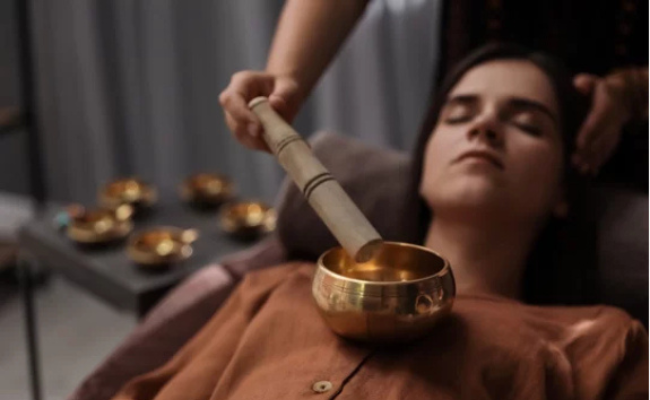The Role of Holistic Medicine in Managing Chronic Pain
Holistic medicine, an alternative approach to healthcare, has gained recognition as a solution for people seeking natural, non-invasive treatments. Dissatisfaction with conventional medicine has prompted this shift, increasing interest in more holistic practices.
In this article, we delve into the world of alternative medicine, examining the various practices, treatments, scientific evidence, benefits, and limitations it encompasses. Our goal is to equip you with the knowledge you need to make informed decisions about integrating this lifestyle into your wellness routine.
Understanding Holistic and Alternative Medicine

Defining Holistic Medicine
This type of approach to medical care treats the whole patient instead of only the symptoms of a specific illness or condition. It emphasizes the importance of preventive care to maintain optimal health and prevent disease.
You may also like: 7 Benefits of Concierge Medicine
Exploring Alternative Medicine
Alternative or integrative medicine refers to any healthcare practices or systems not part of conventional Western medicine. It comprises many approaches, including traditional medical practices, mind-body therapies, and various alternative therapies.
Here are some common types of alternative medicine:
- Ayurveda
- Traditional Chinese medicine, such as tai chi
- Naturopathy
- Homeopathy
- Chiropractic
Alternative Medicine: Scientific Evidence and Case Studies

Photo credit: Adobe Stock
Growing evidence supports using holistic and alternative medicine approaches for various health conditions. A meta-analysis of 60 clinical trials found that mind-body therapies effectively reduce chronic pain intensity and improve physical function compared to standard treatments.
Despite these positive findings, there are some limitations to the research. For example, many studies in this area have small sample sizes, limiting the findings’ generalizability. Also, regulating herbal and dietary supplements varies widely by country. Additionally, product quality, purity, and safety issues may exist.
Critical Benefits of Holistic and Alternative Medicine
Physical Health Benefits
Holistic and alternative medicine approaches have been shown to provide numerous physical health benefits. These are some benefits holistic medicine can provide:
- Pain Management: Acupuncture, massage, and chiropractic care can relieve pain and improve physical function for individuals with chronic pain conditions.
- Improved Immunity: Herbal remedies, such as echinacea and elderberry, can boost the immune system and lessen the duration of flu symptoms.
- Cardiovascular Health: Mind-body therapies such as yoga and meditation lower blood pressure and reduce the risk of heart disease.
Make sure you speak with a medical doctor or healthcare provider when combining alternative holistic and traditional medicine.
Mental and Emotional Health Benefits
Holistic and alternative medicine approaches can also provide numerous mental and emotional health benefits, such as:
- Stress reduction
- Mood enhancement
- Better sleep
- Addiction recovery
Enhanced Spiritual Well-being
Spirituality is often integral to holistic and alternative medicine approaches, as it recognizes the interconnectedness of the body, mind, and spirit. Here are some ways in which spirituality can contribute to overall well-being:
- Improved coping skills
- Greater sense of inner peace
- Finding meaning and purpose
Popular Holistic and Alternative Therapies

Photo credit: Adobe Stock
Acupuncture, Chiropractic Care, and Herbal Medicine
Acupuncture is a Chinese medicine technique that involves inserting thin needles into points on the body. Chemotherapy and acupuncture are holistic cancer treatments. It helps balance the body’s energy flow, relieving pain and improving health in cancer patients.
Second, chiropractic care manipulates the backbone and other joints to improve alignment and relieve pain. It often treats back and neck pain, headaches, and other musculoskeletal issues.
Finally, herbal medicine uses plant-based remedies to promote health and treat illness. Treatments such as Ayurveda and traditional Chinese medicine can treat various conditions, from digestive issues to anxiety and depression.
Homeopathy, Massage Therapy, and Mindfulness Practices
Founded on the principle of “like cures,” homeopathy is a holistic medicine system that uses diluted substances to stimulate the body’s natural healing processes. This suggests that a substance that causes symptoms in a healthy person can treat similar symptoms in a sick person.
On the other hand, massage therapy is the scientific manipulation of tissues in the body to cause relaxation and relieve pain. It may treat musculoskeletal issues such as back pain and muscle tension and promote relaxation and stress reduction.
And mindfulness practices like mindfulness meditation and yoga focus on the present moment. These practices reduce stress and anxiety, improve mood, and enhance well-being.
Naturopathic Medicine and Yoga
Naturopathic medicine uses natural remedies and therapies to promote health and treat illness. It emphasizes using diet, lifestyle changes, and natural remedies such as herbs and supplements to support the body’s natural healing processes.
When you combine naturopathic medicine with yoga, you boost the healing properties of the natural remedies. As a mind-body practice, yoga helps you improve your posture, breathing, and meditation. It improves flexibility, strength, and balance, promoting relaxation and stress reduction.
You may also like: Cultivating Nature’s Medicine At Home
Integrating Alternative Medicine into Your Lifestyle
Making the change to alternative medicine can take time and effort. However, follow these five simple steps to help you live a more holistic lifestyle:
- Eat a balanced diet: Healthy diets are essential for overall health and wellness. Add plenty of fresh fruits, vegetables, lean protein sources, and whole grains into your meals.
- Stay physically active: Regular exercise can enhance mood and reduce stress. Choose activities you enjoy, such as yoga, walking, or dancing, and make time for them in your schedule.
- Manage stress: Stress can affect physical and mental health. Incorporate stress-reducing practices into your daily routine, such as meditation, deep breathing, or journaling.
- Consider natural remedies: Herbal remedies and supplements can help build a holistic health routine. However, make time to research and talk with a holistic doctor before trying new supplements or remedies.
- Practice self-care: Self-care activities like taking a warm bath, practicing yoga, or reading a book, can promote relaxation and reduce stress.
Choosing a Practitioner
Holistic and alternative medicine approaches can be highly personalized. A naturopathic doctor, chiropractor, or holistic health practitioner will develop a personalized health plan that meets your unique needs.
The Synergy Between Holistic/Alternative and Traditional Medicine

Photo credit: Adobe Stock
Complementary Approaches
Holistic approaches can work with traditional medicine to support health and well-being. For example, conventional medicine may be necessary for acute conditions that require immediate medical attention. On the other hand, holistic and alternative approaches may be helpful for chronic conditions that require ongoing management.
However, communication with holistic practitioners is essential when combining these approaches. Patients must always inform their healthcare providers about any complementary therapies they are using.
Conclusion
Embracing holistic medicine can be vital in managing chronic pain, often with fewer side effects than traditional methods. By understanding its benefits and working closely with your healthcare provider, you can navigate toward safe and effective treatments. The journey to wellness need not be arduous; alternative medicine might be the key to unlocking your path to pain-free living.

